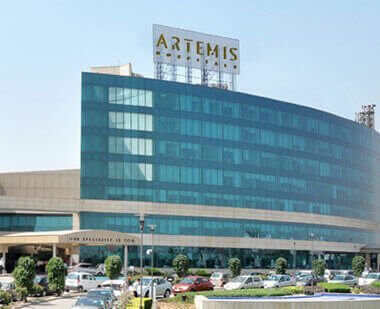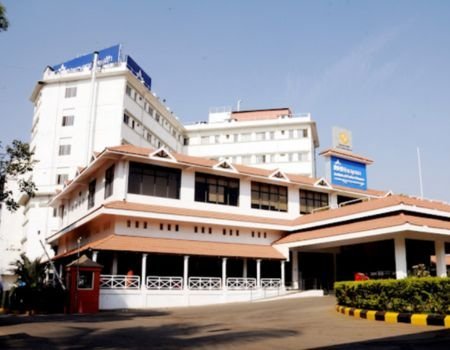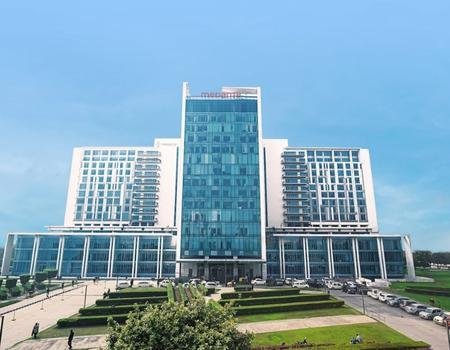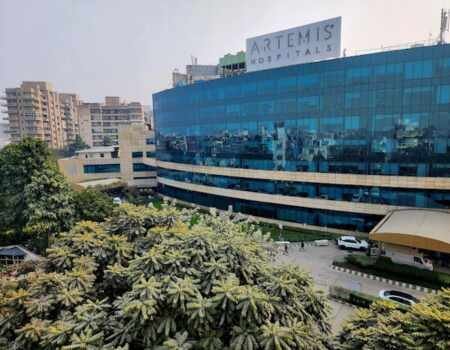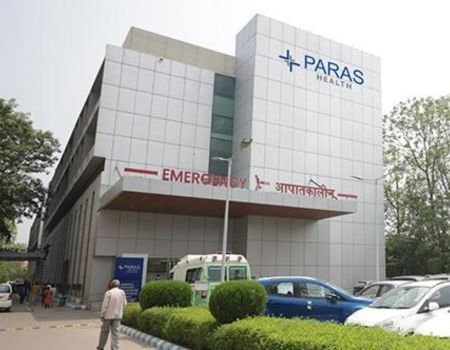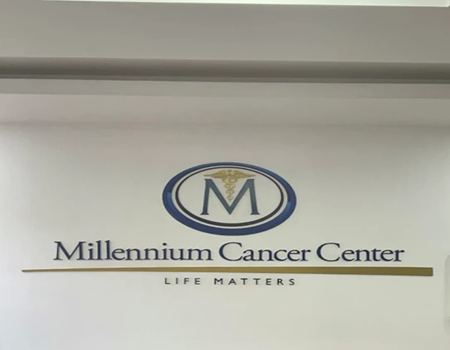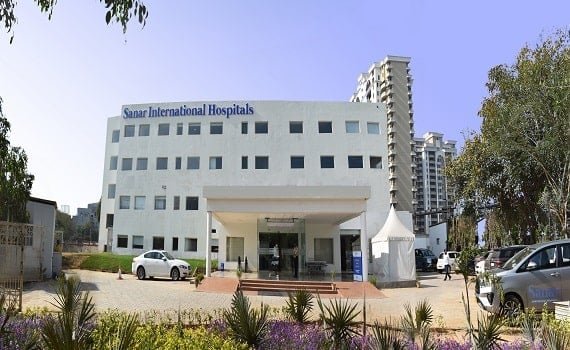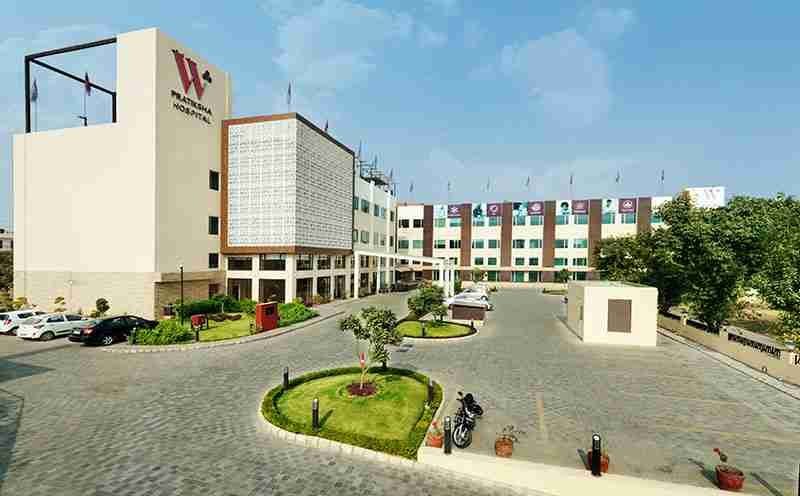Best Chemotherapy Centres in Gurgaon
Gurgaon, a prominent city in the National Capital Region of India, hosts several esteemed medical institutions offering comprehensive chemotherapy services. Below is a curated list of some of the best centres for chemotherapy in Gurgaon, along with their accreditations, chemotherapy types offered, approximate costs, rehabilitation support, and answers to frequently asked questions.
Best Chemotherapy Centres in Gurgaon
| Hospital Name | Accreditations & Affiliations | Chemotherapy Types Offered | Approximate Cost (INR) | Rehabilitation Support |
| Manipal Hospital, Gurugram | NABH | Various chemotherapy regimens for different cancer types | ₹10,000 to ₹1,70,000 | Yes |
| Medanta – The Medicity | NABH, JCI | Comprehensive chemotherapy services across multiple oncology specialties | ₹18,000 to ₹50,000 | Yes |
| Artemis Hospital | NABH, JCI | Advanced chemotherapy treatments with personalized care plans | ₹18,000 to ₹50,000 | Yes |
| Fortis Memorial Research Institute | NABH, JCI | Multidisciplinary chemotherapy options tailored to individual patient needs | ₹18,000 to ₹50,000 | Yes |
| Narayana Superspeciality Hospital | NABH, JCI | Specialized chemotherapy protocols for various cancer stages and types | ₹18,000 to ₹50,000 | Yes |
Note: The costs mentioned are approximate and can vary based on the specific treatment plan, duration, and individual patient requirements. It’s advisable to consult directly with the hospitals for precise estimates.
List of Chemotherapy Centers with Detailed Unit Information
Final Thoughts – Each of these top centres for chemotherapy in Gurgaon is committed to delivering comprehensive, high-quality oncological care. With a focus on personalized treatment regimens, advanced chemotherapy protocols, and robust rehabilitation support, these institutions prioritize the well-being of their patients. The heads of the chemotherapy units, as listed (indicative), play a pivotal role in ensuring that every aspect of cancer treatment is managed with care and precision.
When it comes to the treatment outcomes for generalized cancer types at these best centers for chemotherapy in Gurgaon, the overall prognosis has been very encouraging. These institutions specialize in managing a broad spectrum of malignancies—from breast and lung cancers to colorectal and hematological cancers—by offering tailored chemotherapy regimens. For example, Medanta – The Medicity and Artemis Hospital have well-documented records of improved survival rates and reduced recurrence in common cancers due to their advanced treatment protocols and personalized care. Meanwhile, Manipal Hospital, Fortis Memorial Research Institute, and Narayana Superspeciality Hospital excel in delivering multidisciplinary care that significantly enhances prognosis even in complex cases. Notably, Artemis Hospital show particularly strong outcomes in breast and gynecological cancers, while Medanta lead in managing hematological malignancies. This reinforces the idea that with the implementation of state-of-the-art chemotherapy techniques, continuous monitoring, and integrated rehabilitation support, these centres yield excellent prognoses for a variety of cancer types, thereby offering patients not only extended survival but also an improved quality of life.
Treatment Outcomes (%) for Common Cancer Types
Here is the graph comparing the treatment outcomes (%) for common cancer types—Breast, Lung, Colorectal, and Hematological—across the top chemotherapy centres in Gurgaon. This visual helps illustrate how each hospital performs in managing various cancers, reflecting high success rates and strong oncological outcomes, with Artemis Hospital and Medanta – The Medicity showing especially notable results.
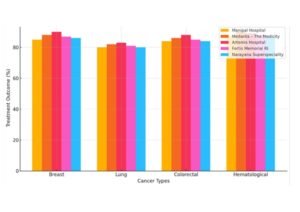
Absolutely YES! Certain cancer types—especially when detected early—can have near or even 100% treatment success rates, and Gurgaon’s top hospitals have demonstrated excellent outcomes in such cases.
Among the best centers for chemotherapy in Gurgaon, hospitals like Medanta – The Medicity, Artemis Hospital, Fortis Memorial Research Institute, Manipal Hospital, and Narayana Superspeciality Hospital have achieved remarkably high survival and cure rates in cancers such as:
- Thyroid Cancer (especially papillary and follicular types): Often curable with early detection and a combination of surgery, radioactive iodine, and minimal chemotherapy.
- Testicular Cancer: With the right chemo regimen, success rates often exceed 95–100%, especially in early stages.
- Hodgkin’s Lymphoma: Known for its high chemo-sensitivity, offering over 90% long-term cure rates.
- Childhood Leukemias (like ALL – Acute Lymphoblastic Leukemia): With modern protocols, success rates can approach 90–100% in early stages.
These top chemotherapy hospitals in Gurgaon are equipped with accredited oncology units, latest chemotherapy delivery systems, and cooling cap technology to reduce hair loss. They also offer robust rehabilitation and psychological support services, which further improve patient outcomes.
These hospitals align with those search intents, providing evidence-based treatments, personalized oncology protocols, and leading cancer specialists, making them go-to destinations for patients looking for curative outcomes in cancer therapy.
It’s Essential to Have Open Discussions with Your Oncologist and the Cancer Rounds Team for Tailored Chemotherapy
When searching for the Best Centers for Chemotherapy in Gurgaon, one of the most critical factors is having open, ongoing communication with your oncology care team. This ensures your chemotherapy treatment is personalized to your specific cancer type, stage, and overall health. One reliable way to achieve this is by connecting with expert support systems like the Cancer Rounds Team, known for providing personalized, patient-centric oncology consultations.
Why Cancer Rounds Consultation is Essential for Chemotherapy in Gurgaon?
- Tailored Treatment Planning: The Cancer Rounds Team collaborates with top oncologists in Gurgaon to create customized treatment plans that optimize results and reduce unnecessary side effects.
- Solving Specific Queries: Whether it’s understanding the INR/USD cost of chemotherapy, evaluating drug options, or exploring hair loss prevention technologies like scalp cooling caps, their experts provide reliable answers grounded in clinical experience.
- Latest Technology Insights: Curious about cooling cap technology to minimize hair loss during chemotherapy? The Cancer Rounds experts can tell you if it’s available at your selected hospital, whether it’s Medanta, Artemis, or Fortis, and how effective it is based on the latest outcomes.
- Post-Chemotherapy Rehab Support: One area often overlooked is post-treatment rehabilitation, including diet, immunity building, and psychological support. Cancer Rounds integrates rehabilitation services into the recovery phase, improving the overall quality of life.
Real Query Solved with Cancer Rounds:
Patient Query:
“I’m starting chemotherapy at a top hospital in Gurgaon, and I’m very anxious about side effects—especially hair loss. Do cooling caps really work, and how much do they cost in INR?”
Cancer Rounds Expert Response:
“Cooling caps can be effective in reducing hair loss during chemotherapy, especially for solid tumor regimens. Their availability varies across hospitals like Fortis and Artemis. Costs may range from ₹5,000–₹20,000 per cycle, depending on the system used and hospital policy. We’ll help you check if it’s available at your center and if it aligns with your treatment.”
Frequently Asked Questions (FAQs) about Chemotherapy
Q1. What are the common side effects of chemotherapy?
Common side effects include fatigue, nausea, vomiting, hair loss, and increased risk of infections.
Q2. Can chemotherapy cause hair loss?
Yes, chemotherapy can lead to hair loss as it affects both cancerous and healthy rapidly dividing cells. But the solution is there.
Q3. What is a cooling cap, and does it prevent hair loss during chemotherapy?
A cooling cap is a device worn during chemotherapy to cool the scalp, aiming to reduce blood flow to hair follicles and minimize hair loss. Its effectiveness varies, and it’s best to consult with your oncologist about its suitability.
Q4. How long does chemotherapy treatment last?
The duration of chemotherapy varies based on the cancer type, stage, and individual treatment plans. It can range from a few weeks to several months.
Q5. What should I expect during a chemotherapy session?
During a chemotherapy session, you’ll receive the prescribed drugs through the chosen method (oral, IV, etc.). The process can take from a few minutes to several hours, depending on the treatment plan.
Q6. How can I manage chemotherapy side effects?
Managing side effects involves medications, dietary adjustments, physical activity, and support from healthcare providers. It’s essential to communicate any side effects with your medical team.
Q7. Will I need to stay in the hospital during chemotherapy?
Many chemotherapy treatments are outpatient procedures, meaning you can go home the same day. However, some cases may require hospitalization.
Q8. How does chemotherapy affect my immune system?
Chemotherapy can weaken the immune system by reducing white blood cell counts, increasing the risk of infections.
Q9. Can I work during chemotherapy?
Many patients continue to work during chemotherapy, though it depends on individual health and treatment side effects.
Q10. Are there dietary restrictions during chemotherapy?
It’s advisable to maintain a balanced diet. Your healthcare provider may suggest specific dietary guidelines based on your condition and treatment.
Q11. How will chemotherapy affect my daily life?
Chemotherapy can impact daily activities due to side effects like fatigue and nausea. Planning rest periods and seeking support can help manage daily tasks.
Q12. Is chemotherapy always effective?
Effectiveness varies based on cancer type, stage, and individual response. Your oncologist will discuss expected outcomes based on your specific situation.
Q13. What happens if chemotherapy doesn’t work?
If chemotherapy isn’t effective, your doctor may suggest alternative treatments like targeted therapy, immunotherapy, or participation in clinical trials.
Q14. How do I prepare for chemotherapy?
Preparation includes understanding the treatment plan, arranging support systems, and discussing potential side effects with your healthcare team.
Q15. Can chemotherapy cure cancer?
Chemotherapy can cure certain types of cancer, control others, or provide palliative care to improve quality of life.
Q16. How can I support a loved one undergoing chemotherapy?
Offer emotional support, assist with daily tasks, and encourage open communication about their needs and concerns.
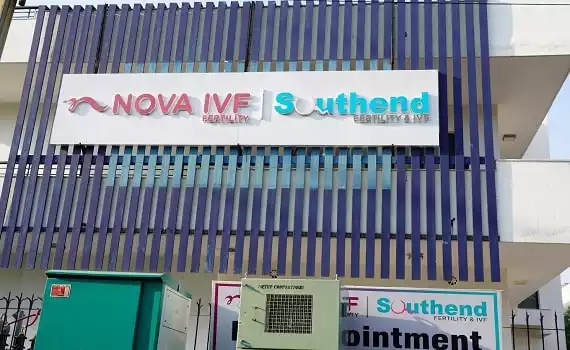

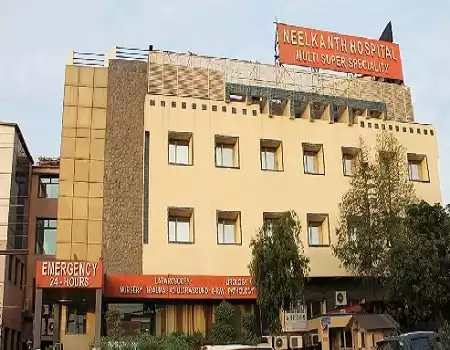
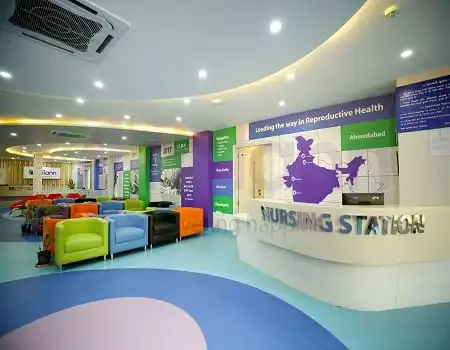
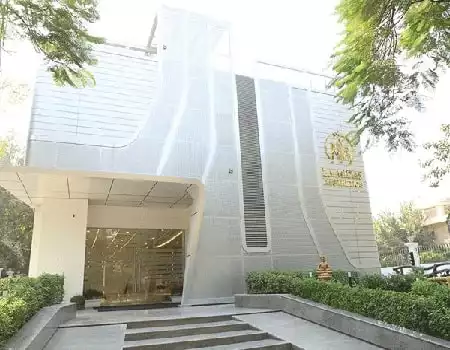
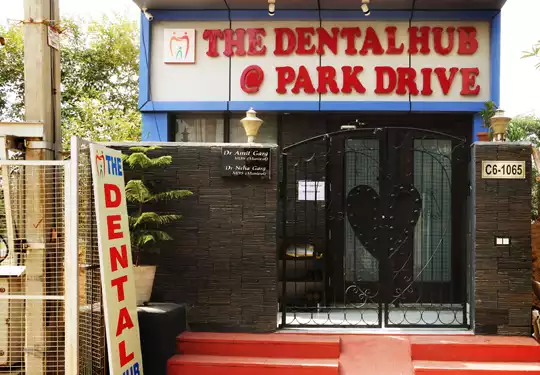


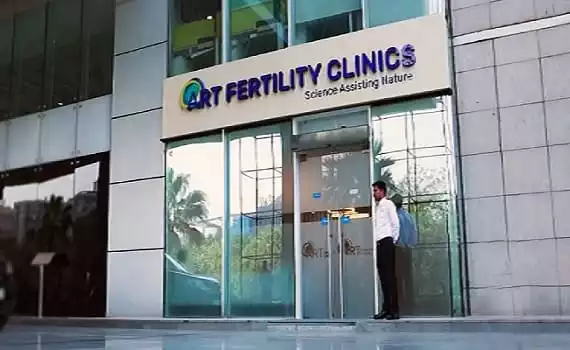
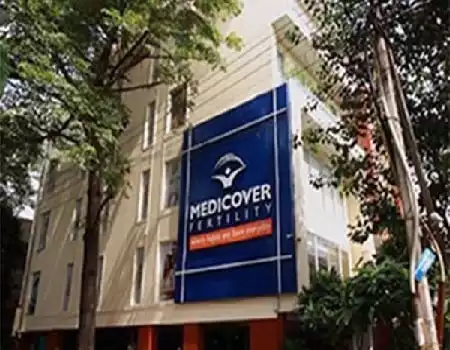
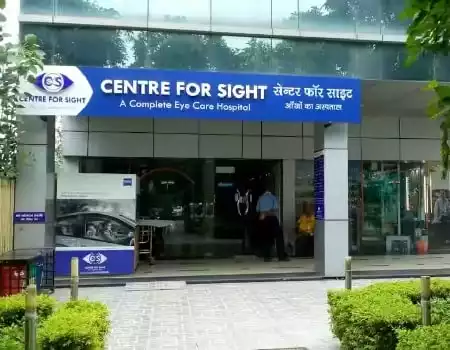
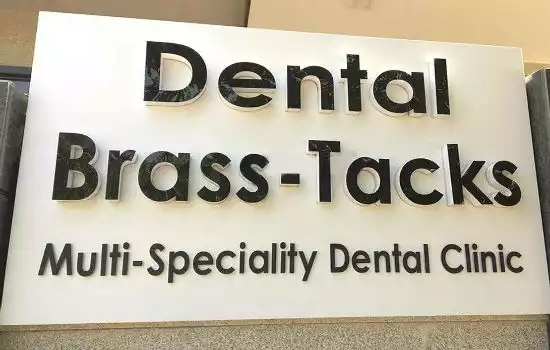
You May Be Also Interested In

Our Impact
CancerRounds is making quality cancer care accessible to more people every day.




Why Choose India for Cancer Treatment?

World-Class Care
Skilled oncologists provide top-tier medical services

Affordable Treatment
Costs are significantly lower than in Western countries.

Comprehensive Packages
Hospitals offer all-inclusive plans covering surgery, stay, and aftercare.

Easy Accessibility
Well-connected airports and international flight routes.

Proven Success
High patient satisfaction and positive treatment outcomes
Thank You!
Your form has been submitted successfully.


